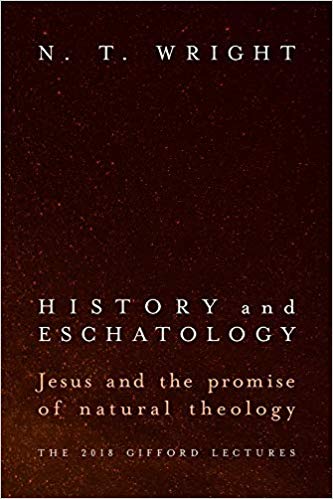In some ways, chapter 3, entitled Shifting Sands, is the most important chapter in the book. It presents us with Tom Wright’s definition of what history is and what it does, and why it is important for theology, including natural theology. Wright stresses that history is a necessary, though often absent, ingredient in natural theology. Doing history requires: “humility to understand the thoughts of people who thought differently from ourselves; patience to go one working with the data and resist premature conclusions; penitence, to acknowledge our traditions may have distorted original meanings and that we have preferred the distortions to the originals; and love, in that genuine history like all genuine knowledge, involves the delighted affirmations of realities and events outside ourselves, and thoughts different from our own.” (p.77).
History can refer to events in the past, or the written record about events in the past, and history writing as a task means researching and writing about things that actually happened, and it can also involve the comparative task of looking at various past events and trying to discern a pattern or principle of meaning in the things that happened. This involves studying the evidence and proposing a hypothesis to explain it. ‘Person X murdered Person Y because……’ The search for motive or meaning is always crucial to good history writing. Wright also notes that history can mean a meaningful sequence of events or a narrative about that sequence…. How has this pursuit affected modern Biblical studies? Here Wright says the following:
“Much of the early historical investigation was done in Germany between the late 18th and the early 20th century, just when the German Enlightenment with Kant as its patriarch, Hegel as its Moses, and a line of prophets from Goethe to Feuerbach and beyond was eager to challenge traditional Christianity, and cut it down to size. The aim was precisely not to find ‘what actually happened’ in some supposedly neutral fashion, but to discover what ought to have happened if the ideals of the Enlightenment and with them the great new European culture project was to be valid. Hence the pressure to epistemological caution, if not downright skepticism, was powerfully reinforced by the social , cultural and political pressure towards forms of radical Protestantism.” (p. 88). There follows a detailed critique of Bultmann well worth reading, but we move on to his discussion of critical realism and the proper approach to history.
Critical realism, while recognizing we are all active readers of texts and not purely objective in our reading, nevertheless affirms that the past is knowable if there is sufficient actual evidence, and the compiling of evidence is not enough. The evidence must be critically sifted, especially to determine what is really of historic importance and what is not. You form a thesis or hypothesis about the data, and then compose a narrative about what you’ve discovered. History, of course does not repeat, unlike chemical processes, so when we talk about the science of doing history we mean something rather different than the science of doing a lab experiment on a set of chemical, an experiment that is repeatable. With history you proceed by hypothesis about the data, and seek verification or falsification from the data. The data must be studied with an awareness of the original contexts and with sympathetic imagination. It is here (p. 97) that Wright begins to speak about ‘the epistemology of love’ in earnest. Each culture has its own scale of values, its own cultural norms and it should be evaluated on the basis of its own rules of thought and action not some later and foreign ones. “each has its own vocabulary, [which can be grasped only with the passion of] a friend, an intimate, a lover” (here he is partially quoting J.G. Hamann. So the epistemology of love requires entering into the mind and world of the ancients sympathetically. Done right, this sort of historical work produces real knowledge so Wright stresses “If history is real knowledge about the real world, it must take its place near the heart of any theological investigation which seeks to bring that real world into engagement with the question of God.” (p. 101). The Christian Gospel is public truth, available for public inquiry. There is more to say, but we will save it for the next post.













